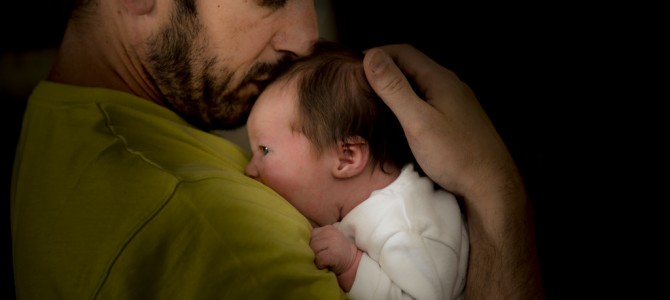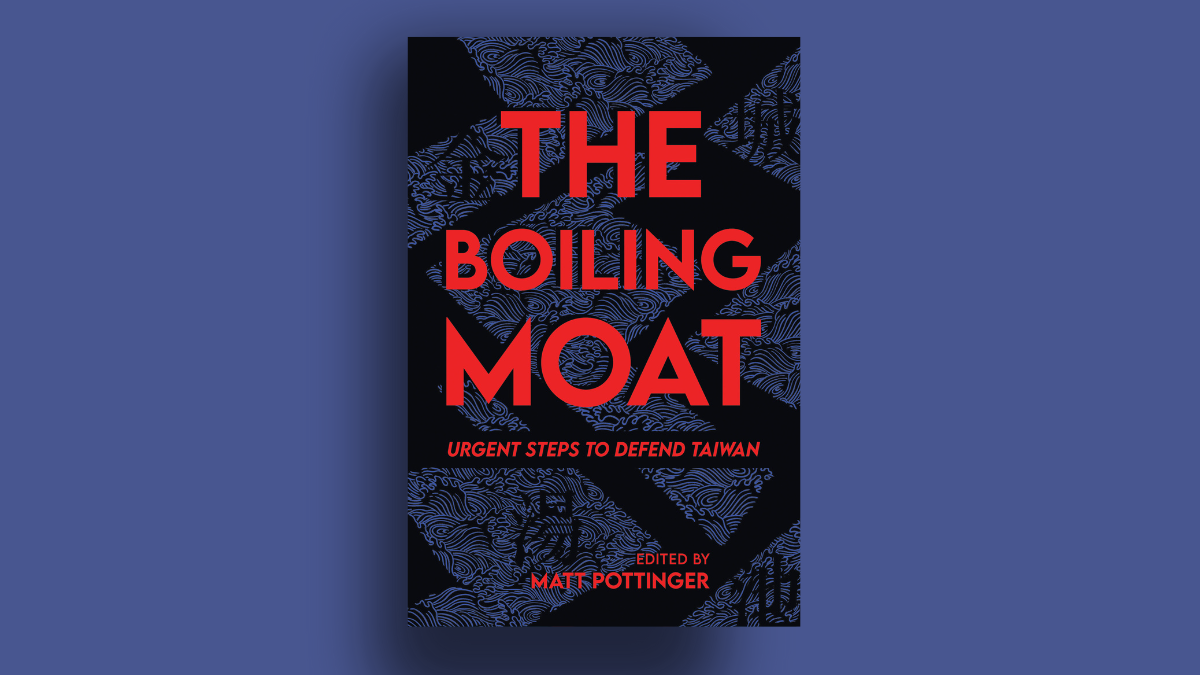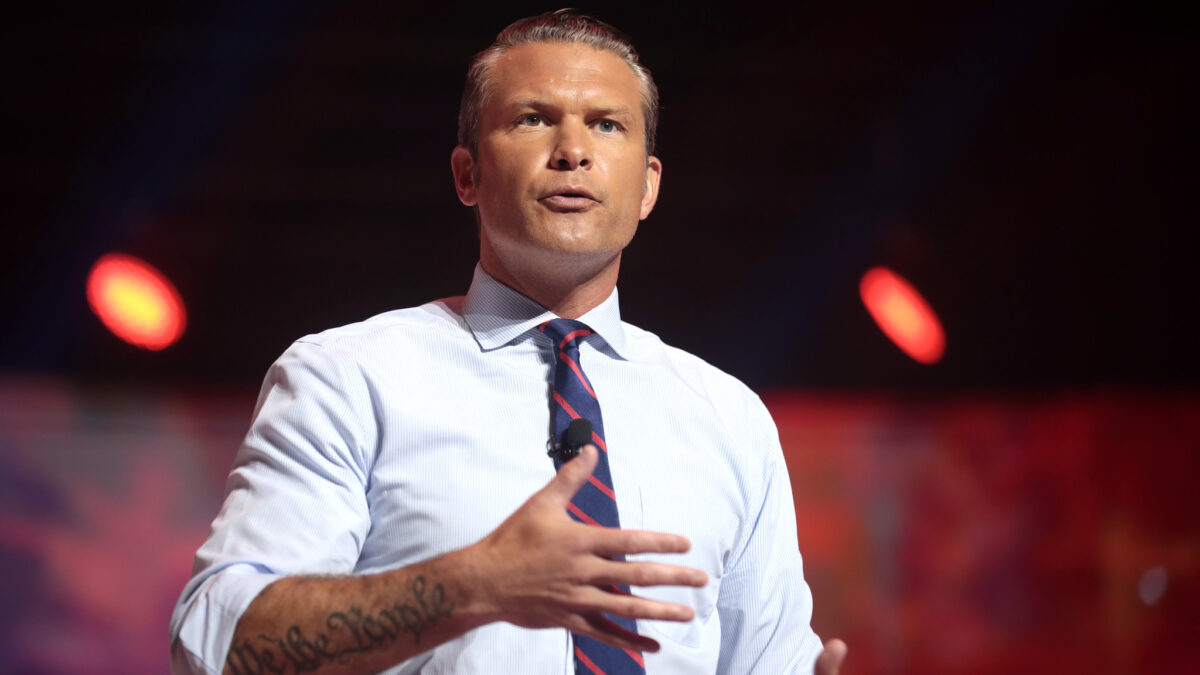
The American Dream is slipping away from reach for too many Americans. The American middle class is no longer the world’s wealthiest, social-mobility in the U.S. is worse today than it was during the robber-baron era, and China is set to overtake America as the world’s richest economy within the year.
Our politicians continue to propose feckless policies to deal with inequality and lagging social mobility, such as minimum wage and marginal tax hikes. Yet these politicians ignore the fundamentals that fuel poverty, above all the state of the American family. Family-breakdown, usually in the form of fatherlessness, has played a huge role in promoting poverty and hampering social mobility:
Fatherlessness causes systemic poverty
Though marriage remains popular among wealthier Americans, its popularity among poorer Americans has declined dramatically in the last 50 years. Today, 71 percent of poor families with children are headed by single parents. 73 percent of families with children that are not poor are headed by married couples.
Marriage reduces child-poverty: Being raised in a married family reduces a child’s probability of living in poverty by 82 percent.
Fatherlessness affects a child’s future well into adulthood: Children living in single-parent homes are 50 percent more likely to experience poverty as adults when compared to children from intact married homes – this trend exists even after original differences in childhood poverty are accounted for.
One of the greatest indicators of a child’s chances of leaving systemic poverty, possibly the greatest, is their family’s structure: children who grow up without a father are five times more likely to live in poverty and commit crime as adults, nine times more likely to drop out of school, and 20 times more likely to end up in prison.
Growing up fatherless has a big psychological impact on kids: In the book Willpower, written by cognitive psychologist Roy Baumeister and science writer John Tierney (and detailed in a great book by Nick Schulz from AEI), a psychology test administered to children is described. In the test, children can receive a small prize right away, yet have a larger more valuable prize available in 10 days if they forgo the smaller prize. En mass, children without a father in the home chose the initial prize, while children with a father in the home were far more willing to wait 10 days for the larger prize.
Marriage is also good for adults: Even if differences in education are accounted for, when married parents are compared to single parents with the same level of education, the poverty rate for a married person is 75 percent lower. On average, high school dropouts who are married have a far lower poverty rate than do single parents with one or two years of college.
Conservatives think fatherlessness among the poor has been caused by welfare
If marriage is so important in combating poverty, what can be done to promote marriage among the poor? Conservatives blame the decline of the poor family on government programs that, they say, incentivized fatherlessness:
In 1964, when the “War on Poverty” began, only 6 percent of children were born out of wedlock – By 2010, 40.8 percent of children were born out of wedlock. Only 9 percent of children were raised by a single parent in 1960, yet today almost one-third are being raised without a father.
Nowhere has the declining American family been more pronounced than in the black community. Black out of wedlock births went from 18 percent in 1950, to 24.5 percent in 1964, to 50.3 percent in 1976. They reached 70.7 percent in 1994, and sit at around 72 percent today. In 1950, black women were more likely to be married than white women, and only 9 percent of black families with children were headed by a single parent. Today, roughly two-thirds of black children are now raised in single-parent families.
Liberals think more birth control and abortion access will decrease fatherlessness
But many liberals are reluctant to blame the welfare state. Instead, they say, the increase of fatherlessness should be combated by giving poor women greater access to affordable birth control and abortion. This argument recently appeared in a Nicholas Kristoff article and largely originates from a Brookings paper authored by George Akerlof and Janet Yellen (yes, the current Fed chair). The logic of the liberal argument goes like this:
Birth control and abortion changed people’s attitudes towards sex, children, and marriage, to the degree that sex was now expected outside of marriage, and having children outside of marriage was less frowned upon by society
Because of the preceding point, the number of shotgun marriages (couples getting married because the mother was carrying a child conceived outside of marriage) declined. This decline in shotgun marriages disproportionately affected the poor, because the poor didn’t have proper access to birth control (i.e. shotgun marriages don’t occur anymore, but the rich don’t get stuck with unwanted children because they have birth control, yet the poor abandon shotgun marriages without the proper birth control access that would keep unwanted children at bay). Thus, the poor’s unwanted pregnancies now occur outside of marriage. The solution is, it then follows, to provide more birth control and abortion access to poor Americans.
Finally, fatherlessness couldn’t have been caused by welfare expansion, since the rampant inflation of the seventies eroded the value of welfare, even as fatherlessness continued to rise in the seventies.
More birth control and abortion access is not the solution
The error in Ackerlof and Yellen’s analysis is plain – they decouple welfare expansion in 1964 from the incidence of increased fatherlessness among the poor. When liberals claim that one cannot blame the welfare state because welfare’s real payout declined in the inflationary era of the 70’s, they forget that welfare’s benefits can’t be examined in a bubble – they must be examined alongside the payout for employment. Just because welfare’s real benefits declined doesn’t mean welfare’s payout to a single parent stopped exceeding the benefits of marriage for a low-income couple (it did not).
Also, inflationary eras are not good for blue-collar workers, especially for those that live paycheck to paycheck, as many times price-rises outpace wage-rises, eroding the real benefits of labor. Further, in the 1970’s, black-male unemployment largely exceeded white-male unemployment (which is important because family breakdown among poor whites did not fully occur till later).
The Ackerlof/Yellen theory assumes most pregnancies that lead to single motherhood are unwanted, and this is simply not true. Harvard’s Kathryn Edin, the nation’s leading researcher on single mothers, has shown a vast majority of out-of-wedlock births are desired, and a vast majority of the mothers involved had access to birth control and chose not to use it
If fatherlessness among the poor is a problem caused by knowledge of birth control without access to birth control, why were poor blacks affected much faster than poor whites, and why is the white working-class just now beginning to see trends similar to those that the black family experienced 50 years ago? Has the white working class somehow lost access to birth control in the last 20 years?
If poor Americans had no access to birth control in the first place it hardly makes sense that they were, simply by the knowledge of birth control’s existence, caused to abandon the social mores society had followed for thousands of years; especially when a vast majority of the poor still idealize marriage and want to be married – and marriage, especially among the poor, leads to large gains in income (excluding government benefits).
When Kristof claims that marriage promotion strategies have been tried by conservatives during the Bush Administration (see Kristof article), he is talking about a program that used churches and local groups to offer marriage counseling classes, not a program that dealt with economic incentives.
Conservatives are right to blame welfare – here’s what can be done about it
If Ackerlof, Yellen, Kristoff and company are wrong, what can explain the explosion of fatherlessness in the last 50 years?
Despite what the liberal critics don’t want to admit, the government is now playing the role of dad. Welfare programs such as food stamps, public housing, Medicaid, day care, and Temporary Assistance for Needy Families pay out significantly more when dad is not around.
Financial incentives matter, especially when money is already dear. When dad is around “taxable income” goes up, but total resources (due to reduced government benefits) go down. Sure, Americans should have the right to choose any family structure they like and single parents should be venerated – yet the government needs to stop incentivizing fatherlessness.
Here’s a conservative plan to fix the problem of fatherlessness:
- Pair benefits for poor married couples to the benefits a poor single mother receives. Don’t cut aid to single mothers, but reduce the economic incentive that biases fatherlessness.
- First, at the federal level, the earned income tax credit – a subsidy for low wage earners – should be sweetened for married couples.
- Second, at the state level, subsidies for child care should not exist largely for singles – these subsidies should be enhanced for the married poor.
- Don’t stop there: examine every area of government assistance for incentives that drive away dad. Also, get rid of Obamacare’s marriage penalty.
Far too often, we discount the importance of a father
President Obama echoed this several months ago saying, “I didn’t have a dad in the house, and I was angry about it, even though I didn’t necessarily realize it at the time. I made bad choices. I got high without always thinking about the harm that it could do. I didn’t always take school as seriously as I should have. I made excuses. Sometimes I sold myself short.”
The role a father plays in a child’s life is a role that the government can never hope to fill, and government’s attempts to do so have been devastating. There is nothing wrong with a hand up, but driving dad away negates any help the government can hope to provide.
Americans don’t deserve to be stuck in cradle to grave poverty and government dependence. The safety net should thus be used to help families stay intact. This is compassionate, it is conservative, and it is rooted in basic American values. This is how we realize the American Dream in the 21st century. After 50 years of pain, heartache, and broken families, we must do better.
Willis L. Krumholz JD/MBA student at the University of St Thomas in Minneapolis, Minnesota.








